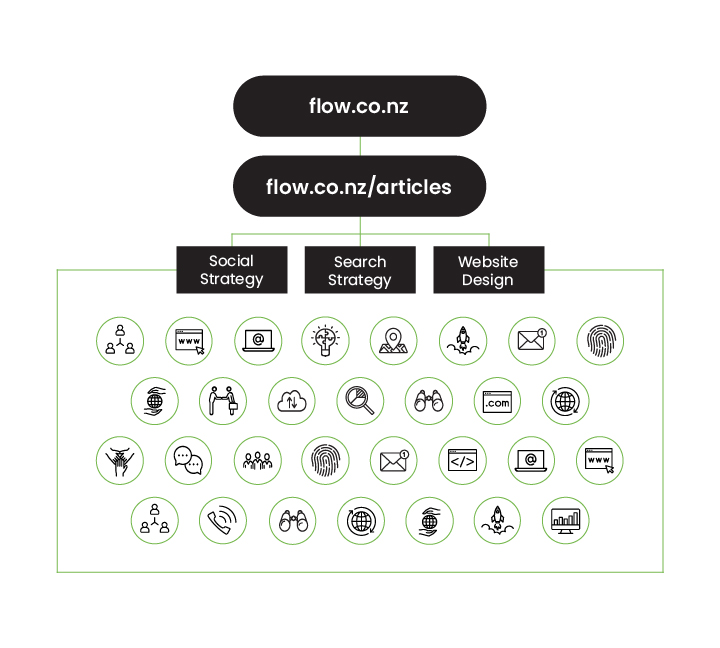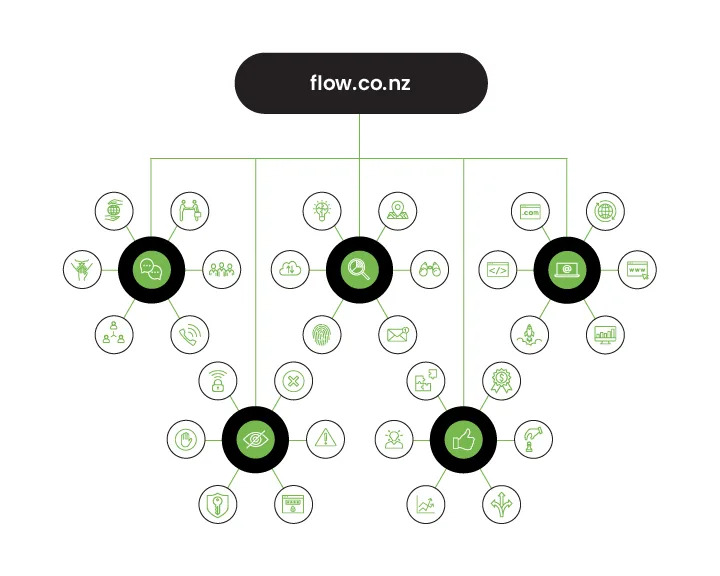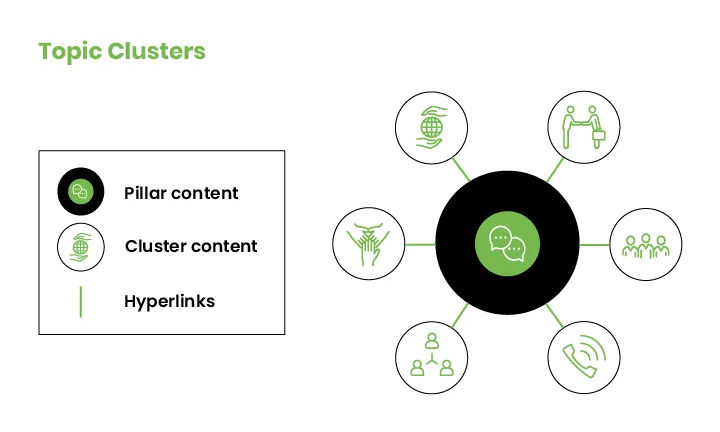Topic clusters – SEO
As SEO has progressed over time, so has the importance of user intent in a search. Not long ago, users could search for fragmented keywords within a search engine to find the results they were looking for.
A few years back, if a user was looking for dining options in Auckland, the user may have searched for a broken term like ‘Auckland restaurant,’ and they would have found the results they were looking for.
While today a user will still be able to find relevant results using this search term, most users are now much more comfortable searching for much more specific queries to find the results they are after.
So, instead of searching for Auckland restaurant, a user may search for ‘best Italian restaurant in Auckland,’ or ‘best restaurant for date night in Auckland’. which is a much more specific search term and will give more specific results.
How Search Engines Have Progressed
As we’ve mentioned, users are now comfortable using very specific search terms to find the information they’re looking for. This can include a user using a variety of different phrases to uncover the information they want to find, and search engines are far better at understanding user search intent far more than ever before.
It sounds complex on the surface, but it’s actually quite simple.
Let’s say you write a blog post titled ‘The Most Effective Lead Generation Methods for Small Businesses,’ this post is an in-depth article and provides all the relevant content on this topic and is optimized for SEO. As a result, your post ends up on the first page of Google when someone searches for the exact term ‘most effective lead generation methods for small businesses.’
But what happens if someone keys into a Google search: ‘how to promote a small business.’ Will your blog post show up? A few years ago, it may not have, but Google and search engines, in general, have a much understanding of the intent behind a search, so don’t be surprised to see your post show up even if the exact title of your post isn’t searched for.
Enter Topic Clusters
This is where topic clusters come in. Topic clusters allow you to create a series of posts around one particular topic, which helps to improve the search ranking of your site, and if executed correctly, topic clusters can launch your site to the top of search engine results.
How Do You Build a Topic Cluster?
When you take a look at most websites, they usually consist of a homepage and a blog. Often when arranging a blog, the owner of the site or the person writing the content will decide upon a particular keyword or series of keywords they want to build their content around.
If you’ve ever had a go at keyword research, you’ll know that when you decide to target a keyword, there are normally over a thousand long-tailed variations of that particular keyword.
As there are so many different long-tailed variations of the keyword you’re looking to rank for, it can be an arduous task to create enough content to rank well. It usually involves creating blog post after blog post, and after a while, your blog can become repetitive and disorganised.
Solving the Problem With Topic Clusters
By following the topic cluster model, you can prevent your blog from becoming cluttered, repetitive, and disorganised.
For example, going back to our previous example, let’s say you want to write a series of posts about ‘lead generation.’ Using the topic cluster model, you’d create one larger, main piece of content about lead generation, and this would be your pillar content.
For your blog, you choose to use the piece of content we spoke about earlier titled ‘The Most Effective Lead Generation Methods for Small Businesses,’ as your piece of pillar content. This post gives an overview of the different lead generation methods small businesses can use to grow their business.
Now that you’ve got your ‘pillar’ piece of content in place, you can begin to create smaller, more specialised posts about the different types of lead generation for small businesses, and these smaller posts are known as your ‘cluster’ posts.
You may want to create three cluster posts, to begin with, these could be titled:
- How to Use LinkedIn to Grow Your Small Business
- Should Your Business Focus on Paid or Organic Lead Generation Methods?
- What Is Lead Generation? (Why You Should Care)
Once you’ve created your cluster posts, you can implement hyperlinks in each post that link back to your piece of pillar content. You could use the term ‘lead generation methods for small businesses’ naturally in all of your cluster posts and hyperlink this text back to your main pillar piece of content. You should use the same term in all of your cluster posts to link back to your main piece of pillar content.
This will lead to the entire topic cluster receiving a boost when just one page performs well. Which will help show Google that you’re an authority on the topic your writing about and will help boost your site’s ranking.
Help Your SEO With Topic Clusters
Topic clusters are all about helping web crawlers make connections and helping Google to see there is a relationship between your content and you being a trusted authority on the topic you’re writing about.
If you can build effective topic clusters and implement them within your SEO strategy, prepare to see your search results shoot to the top of the search results.




